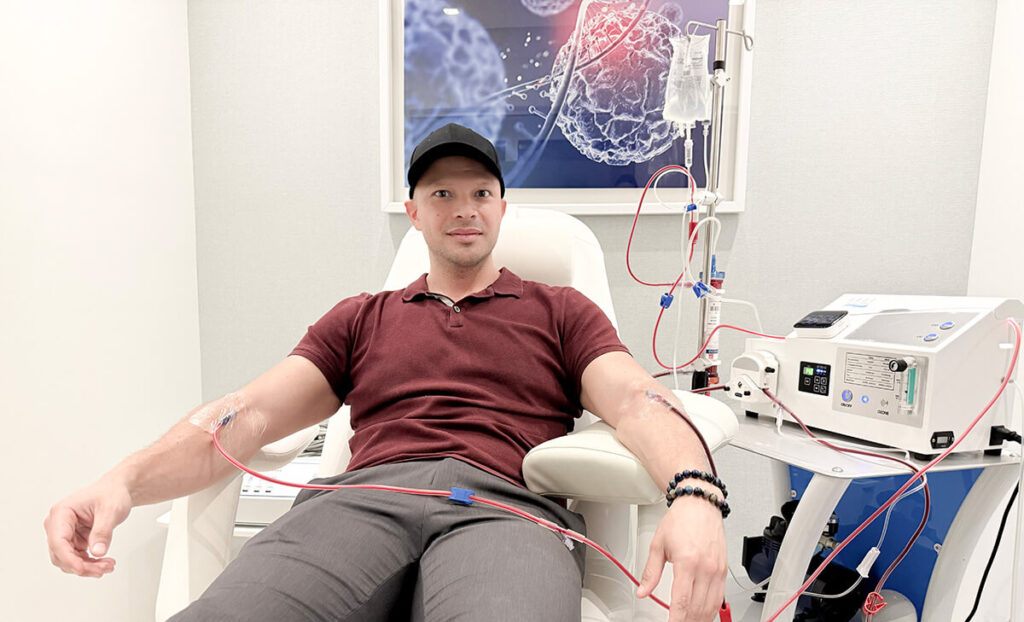In the ongoing quest to improve quality of life and extend functional youth, science is looking beyond traditional treatments. One of the most intriguing promises of the 21st century is follistatin gene therapy, especially those approaches that do not permanently alter human DNA. In this context, the protein follistatin emerges as a key component in the field of regenerative medicine—without the need to modify your genetic identity.
In this article, we explore how follistatin gene therapy could revolutionize the future of physical performance, longevity, and cellular health—all without changing your DNA.
What Is Gene Therapy and How Does It Work?
Follistatin gene therapy is an advanced medical technique that introduces genetic material into the body’s cells to correct or modify biological functions. Traditionally, this involved risks associated with viral vectors or permanent genomic modifications. However, new technologies have developed safer alternatives: non-viral, temporary gene therapies.
Instead of editing the original DNA, these methods introduce a small circular piece of DNA (minicircle) that acts like an “instruction manual” for cells to produce a specific protein for a limited period. In this case, the protein is follistatin.
Why Is Follistatin So Important?
Follistatin is a naturally occurring protein that acts as an inhibitor of myostatin, a substance that limits muscle growth. By blocking myostatin, follistatin promotes muscle mass increase, reduces body fat, improves insulin sensitivity, and accelerates physical recovery.
Moreover, recent studies suggest that its action is not limited to muscle tissue. Follistatin may also influence processes related to cellular regeneration, metabolism, and healthy aging.
Potential Benefits of Follistatin Gene Therapy
According to sources like Minicircle, the possible effects of follistatin gene therapy in humans include:
- Significant increase in functional muscle mass
- Reduction in body fat percentage
- Improved bone mineral density
- Lower levels of inflammatory markers
- Possible reversal of epigenetic age
- Faster recovery after injuries or physical exertion
All of this can occur without altering the individual’s original DNA, representing a new frontier in the safety of follistatin gene therapy.
Safety: How Is Follistatin Gene Therapy Different?
One of the historical concerns surrounding gene therapy has been the risk of irreversible genetic mutations. However, current protocols based on minicircle DNA avoid this issue. These minicircles do not integrate into the genome, and their expression naturally fades over time.
This makes it ideal for individuals who want to experiment with cutting-edge technologies without permanently altering their biology.
Who Might Benefit from This Experimental Therapy?
Although still in the research phase, follistatin gene therapy may appeal to:
- Older adults experiencing muscle loss (sarcopenia)
- Athletes and biohackers seeking enhanced strength and recovery
- Patients with metabolic conditions that resist conventional treatment
- Individuals looking to integrate advanced longevity strategies without modifying their DNA
At Xtend Optimal Health, we proudly offer this therapy as part of our advanced regenerative health solutions, designed to give you safe, effective results. Click here to get in touch and learn more.
Xtend Optimal Health: Your Ally in Science-Based Wellness
We’re here to simplify the most advanced developments in health and make them work for you. Whether it’s muscle strength, regenerative medicine, or long-term vitality, our experts are ready to support your journey.
With science and heart, Xtend helps you live better and longer.
A New Era of Medicine Without Rewriting Your Genetic Code
Follistatin gene therapy represents a powerful and potentially safe alternative for those seeking to improve their health, strength, and longevity—without the risks of altering their DNA.
Rather than rewriting your genetic code, this therapy provides temporary tools that reactivate natural regeneration processes already embedded in your biology.
The future of regenerative medicine may not lie in changing who you are but in reminding your body how to function as it once did. Learn More here https://xtendcells.com/





